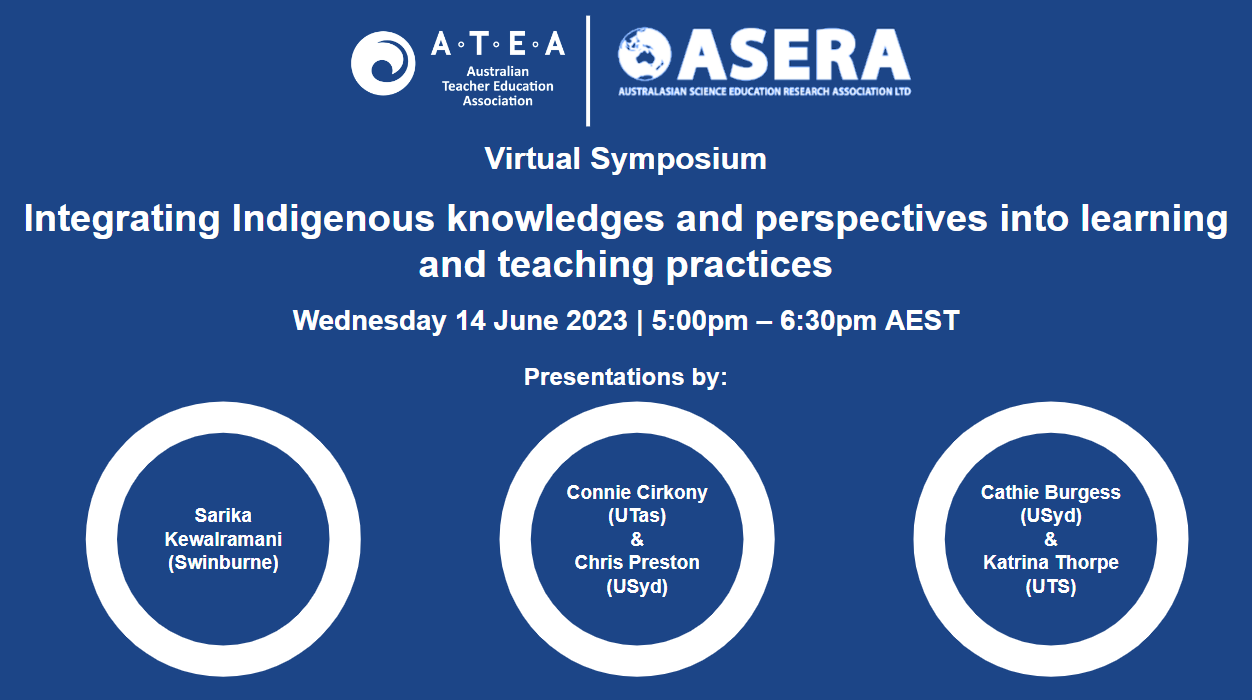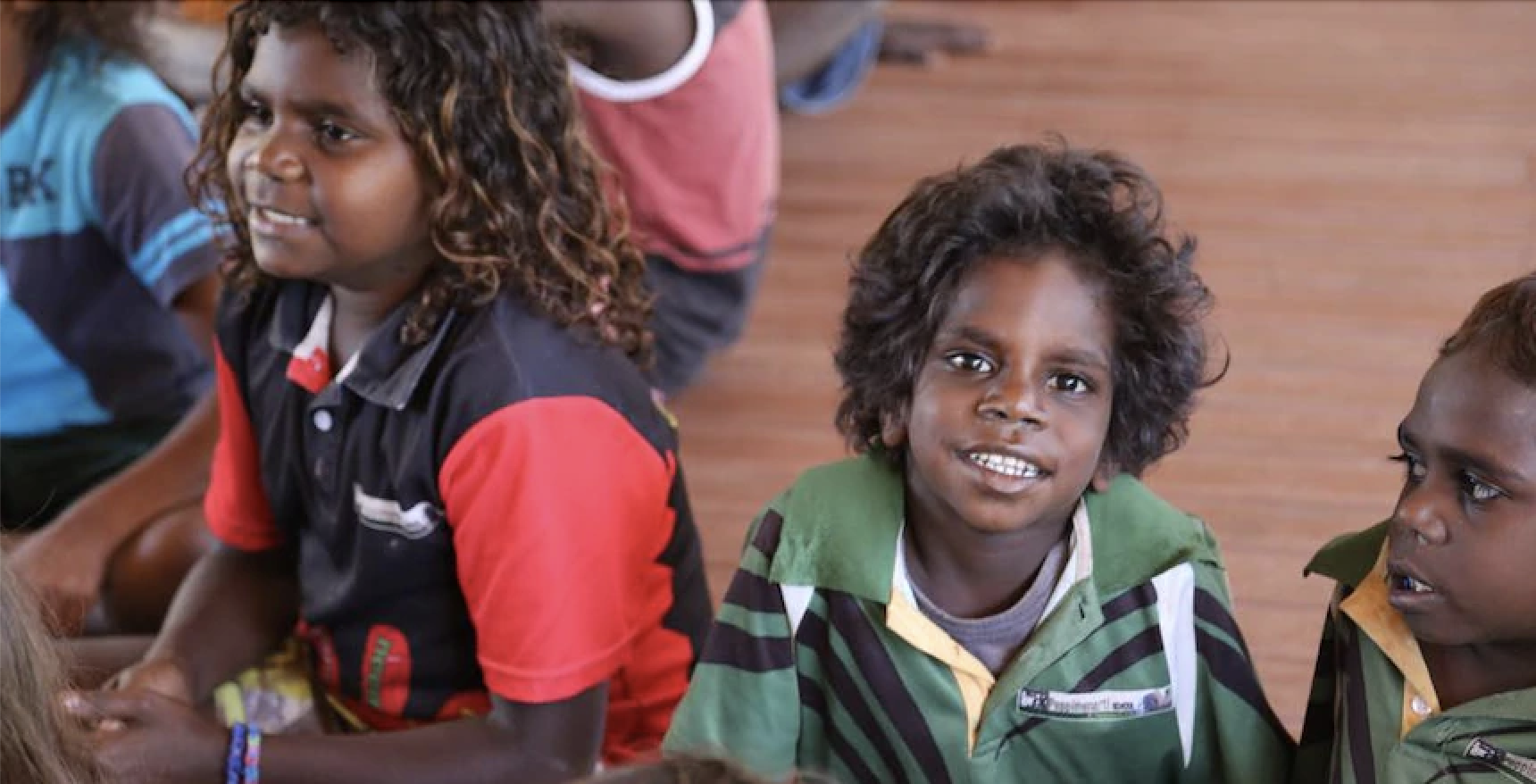Join Zoom Here

(Places limited)
Join us for a thought-provoking symposium featuring three presentations that focus on innovative approaches to Indigenous education. Each presentation will be approximately 20 minutes long, allowing ample time for questions and discussions after each session. The symposium will culminate with a dedicated Q&A session at the end, providing an opportunity for participants to engage with the presenters and explore various perspectives on Indigenous education.
This virtual symposium is unique in that it is a collaboration between two professional associations, ATEA and ASERA. The executive committees from both organisations look forward to welcoming their collective members into this event as a lead up to their respective annual conferences.
Presentation #1: Sarika Kewalramani (Swinburne)
Building preservice teachers' pedagogical content knowledge in teaching Indigenous science
This project addresses a critical challenge in Early Childhood (EC) teacher education to build EC preservice teachers’ (PSTs) competence to incorporate science and Indigenous Knowledge (IK) in their planning and teaching. Research around EC educators’ practices to incorporate science together with Indigenous cultural knowledges into their teaching is grappling with the dilemma of possibility of getting it or doing it wrong. However, there needs to be a starting point in teacher education research and teaching discourses to bring to life the journeys of PSTs while studying to become a teacher that reveals the barriers and facilitators required to embark on this venture of Indigenous knowledge integration into their science teaching practices respectfully and meaningfully. This presentation will report on findings of a small-scale pilot study that collaborated with an Indigenous education expert to investigate the development of PSTs Pedagogical Content Knowledge (PCK) to integrate Indigenous science perspectives in their future teaching practice.
Presentation #2: Connie Cirkony (UTas) and Chris Preston (USyd)
Two-Eyed Seeing Teaching and Learning for Science Education:Worldwide, educators look towards authentic inclusion of First Nations perspectives in school curriculum, including science education. Non-Indigenous science educators from Australia, Canada and New Zealand created a Community of Practice aiming to decolonise and Indigenise our Western tertiary science education curriculum through a strengths-based approach incorporating the principle of Two-Eyed Seeing.
This multi-phase project commenced in 2023. Reflecting on personal beliefs and practices in our Initial Teacher Education units, we discuss the following:
1. Ethical considerations;
2. University supports;
3. Local Indigenous communities' feedback;
4. Meaning from linking our personal and professional learning journeys;
5. Value in multi-country and multi-university collaboration.
Through our learning journey, we are committed to developing collective bodies of knowledge, learning new ways of understanding the natural world, challenging assumptions, trialing new approaches, and co-designing with our communities– with the view to continually reflect on our attitudes, knowledge, skills, and practices as a co-learning pathway toward reconciliation.
Presentation #3: Cathie Burgess (USyd) and Katrina Thorpe (UTS)
Truth telling is healing, healing is nation building
This presentation will share insights from a 5-year teaching and research project called ‘Learning from Country in the City’ (LFC). We highlight preservice teacher and early career teacher responses to Aboriginal-led, Country-centred experiences designed to develop their critical consciousness, build confidence, and learn how to develop important relationships with local Aboriginal communities. In this project we discovered LFC built their capacity to move beyond tokenistic approaches to Aboriginal education, to work in respectful ways with integrity and cultural humility. Listening to Aboriginal community-based educators who deliver these experiences provides insights into the impact Learning from Country has on them, their children and grandchildren and their communities. A Learning from Country Framework has been developed so that these processes can be applied across many contexts, including teacher education. This framework is a cyclical and reflective way to assist teachers and teacher educators on the journey to truth-telling, recognition, sovereignty and healing.

Join Zoom Here